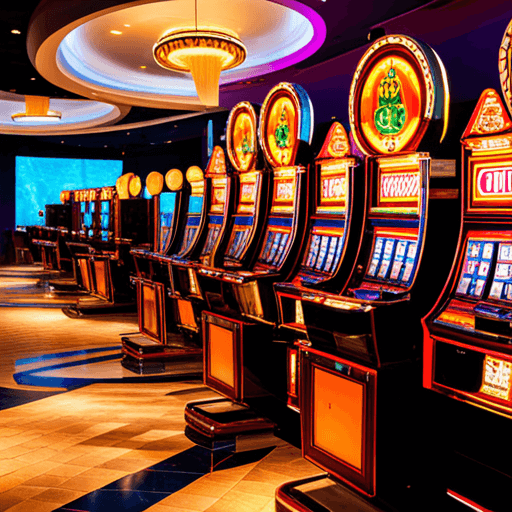The fascinating Progression of Casino Pastimes Across the Ages

Casino experiences have enthralled players throughout history, transforming from basic recreational activities to complex experiences that combine luck, skill, and fun. From the ancient roots of gambling in cultures like ancient Mesopotamia and Rome to the extravagant corridors of current casinos, the history of these games reveals much about the human experience and our interaction with risk. As cultures have merged and technology has advanced, casino games have evolved, mirroring societal changes and innovations in gameplay.
The earliest forms of gambling likely featured simple dice games and placing bets on the outcomes of sports competitions. As time passed, these primitive activities grew into more complex games like playing card games, the game of roulette, and the variety of slot games that line casino floors today. Every generation brought its own set of rules, aesthetics, and social relevance. Today, casino games maintain their evolution with the rise of digital gaming platforms, enabling players from all corners of the globe to join in a collective experience, further blending the traditional with the age of technology.
Early Roots of Gambling Activities
Gambling activities have origins that stretch back to ancient civilizations, where gambling was profoundly embedded in cultural practices and cultural customs. The initial known forms of betting appeared in Mesopotamia around three thousand BC, involving primitive die games made from knuckle material. These initial activities laid the basis for more complex betting games, demonstrating human beings’ instinctive urge to seek fortune and entertainment through luck.
As civilizations developed, so did their gambling pursuits. In early China, around two thousand three hundred BC, objects were found that were similar to primitive basic versions of a lottery game game. More structured forms of betting developed in the Roman civilization, where activities of chance were a common pastime, often taking place in community gatherings. The Romans developed different betting games, which entailed die and table activities, illustrating the pervasive nature of gambling across various social strata. King 88
With the movement of ages, these primitive games shaped the development of contemporary gambling games. In the medieval period, card games grew prevalent in Europe, paving the way for the organized gaming venues we know today. The transition from informal gambling to organized gambling in taverns and private homes marked a major shift in how people interacted with activities of chance, leading to the eventual creation of gaming houses as dedicated places for gambling.
The Rise of Current Gambling Industry
The final 1960s and 1970s marked a significant shift in the world of casino games, propelled by tech innovations and shifts in cultural attitudes towards gambling. The emergence of computers and the World Wide Web revolutionized the way gamblers interacted with their preferred games. Virtual casinos emerged, allowing enthusiasts to enjoy classic casino classics like Texas Hold’em and blackjack from the comfort of their own homes. This new online environment not only expanded access to casino games but also attracted a younger demographic who found the ease and variety tempting.
As digital gaming gained popularity, so did developments in gaming technology. The advancement of advanced software and visual elements transformed traditional gambling games into captivating adventures. Players could now interact with authentic dealers through live feeds, bringing the atmosphere of brick-and-mortar casinos directly into their houses. This fusion of live gaming with online platforms created a unique hybrid experience that boosted the social aspect of gambling, making it possible for individuals to engage and compete with others around the world.
Moreover, the growth of gaming on mobile devices substantially changed the gambling environment. With the ubiquitous use of smartphones and touch devices, players can access their preferred casino games anywhere, whenever. Mobile apps offer a wide selection of games optimized for touchscreens, serving the dynamic lifestyle of modern users. This accessibility has resulted in growing participation in casino games, fostering the rapid expansion of the gaming industry. King88 As a result, the prospects of gambling continues to progress, adapting to new technologies and shifting player expectations.
How Technology Influences Casino Games
Technology’s advancement has greatly changed casino games, enhancing the overall gaming experience for gamblers globally. As the internet emerged, online casinos were created, allowing players to play their preferred games from the safety of their own homes. This change not only made casino games more accessible but also increased the variety of games available, as online platforms could offer many different versions of traditional games without the physical constraints of physical casinos.
Mobile technology further transformed the casino gaming landscape. With the proliferation, players now have the ability to play casino games anytime and anywhere. This flexibility has led to the creation of dedicated mobile applications and optimized websites that provide seamless gaming experiences. Additionally, advancements such as live dealer games have brought the authentic atmosphere of a casino into players’ living rooms, connecting between physical and online gaming.
Moreover, advancements in artificial intelligence and virtual reality are leading to the next generation of casino games. AI improves game design and player interaction, creating customized experiences based on user behavior and preferences. Meanwhile, virtual reality offers immersive environments where players can engage in a simulated casino setting, making the gaming experience more engaging and lifelike. As technology continues to evolve, the future of casino games seems bright, filled with endless possibilities for innovation and entertainment.
